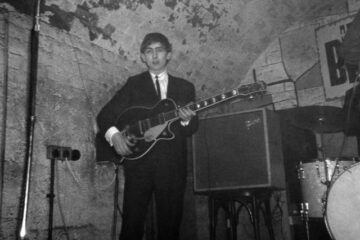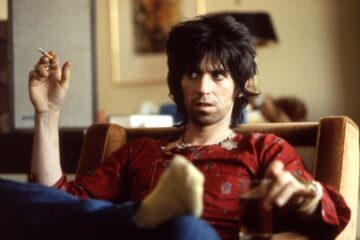When John Lennon left The Beatles in 1969, he signified the end of an era. The subsequent disbandment seemed to confirm the demise of the hippie dream as Western society entered a new decade with very little in the way of societal progress. Martin Luther King was assassinated in the late 1960s, the war in Vietnam wore on, and pop music began to take a darker turn as psychedelic rock dispersed into prog rock, heavy metal and glam rock.
Of course, both decades had their fair share of brightness and darkness, but an air of optimism seemed to prevail in the late 1960s and die after Woodstock. The transition can be seen by comparing Jefferson Airplane’s ‘Somebody to Love’ and David Bowie’s ‘Rock ‘n’ Roll Suicide’, but it can also be clearly traced in John Lennon’s songwriting evolution.
When The Beatles broke up, Lennon had been preoccupied with his marriage to Yoko Ono for some time. Seven years Lennon’s senior, Yoko Ono was something of a mother figure for the troubled Beatle. She helped him address some of his personal conflicts, encouraged his political activism, and nurtured his creativity, changes that all began to manifest in Lennon’s post-Beatles solo career.
After studying Arthur Janov’s “primal scream” therapy alongside Ono, Lennon famously lamented his maternal abandonment in the classic John Lennon/Plastic Ono Band cut ‘Mother’. Unfortunately, through the early to mid-1970s, Lennon’s mental state declined in his state of self-reflection, compounded by his struggle with fame and heroin addiction.
Speaking to Conan O’Brien at the Tribeca Festival in 2023, Lennon’s songwriting partner Paul McCartney reflected on the late Beatle as having “had a really tragic life” before elaborating on his childhood trauma. “As a kid, his mother was decreed to not be good enough to bring him up…His father had left the home when John was three. So that’s not too wonderful,” McCartney said. “John grew up with these sort of little minor tragedies through his life.”
Although Lennon and McCartney’s spell working together ended with bitterness as they proceeded to write scathing songs about one another, including ‘Too Many People’ and ‘How Do You Sleep?’, they fortunately reconciled before the former’s death in 1980. McCartney would later reveal that they never hated one another, as they had a brotherly bond all the while. McCartney always appreciated Lennon’s personal battles and admired his creative resolve.
“It made me realise why he had that vulnerability,” the bassist added. “I always admired the way he dealt with it because I’m not sure I would deal with the stuff he went through that well.”
Long before he screamed “mother”, Lennon used his creativity and musical performance as a form of therapy. The idea of being in a band appealed to him since it offered a family-like dynamic. Furthermore, he could express himself and address personal life in his lyrics. Examples of this range from his cry for help in ‘Help!’ to his poignant ode to fatherly love in ‘Beautiful Boy’.
In a similar vein to ‘How Do You Sleep?’ Lennon penned ‘Steel and Glass’ in the early 1970s as an attack on The Beatles’ former manager Allen Klein. Lennon had worked with Klein on his Imagine album, but the notorious businessman soon showed his true colours when Lennon realised he had been withholding vast sums of money. In the lyrics, Lennon takes a swipe at Klein but also seems to allude to his own childhood issues. “Your mother left you when you were small, but you’re gonna wish you were never born at all,” he sang.
‘Steel and Glass’ appeared on Lennon’s 1974 album Walls and Bridges. While working on the album, he had just returned from his so-called Lost Weekend, during which he left Ono for an affair with May Pang. Despite his state of contrition towards Ono and anger towards Klein, Lennon managed to keep it together and purge his ails in the recording studio.
“It was amazing,” Lennon’s engineer at the time, David Thoener, reflected on the song. “Despite all of the personal pain John Lennon was in, he was a consummate professional in the studio. Almost as if working kept him sane through those difficult times”.



